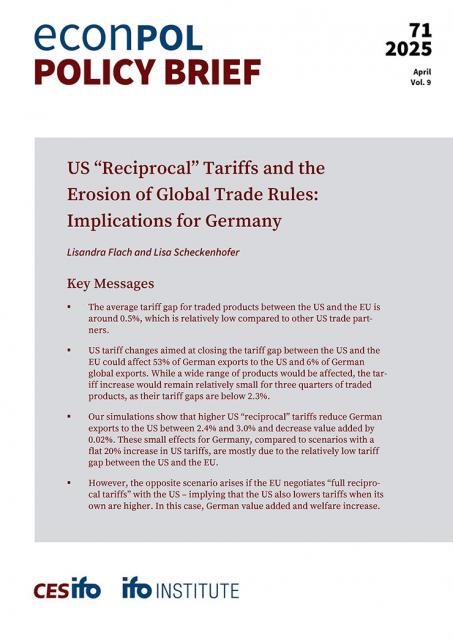News Archive

Offshore Tax Evasion and Wealth Inequality: Evidence from a Tax Amnesty in the Netherlands
|
Working Paper
| News
While tax administrations have made considerable progress in fighting tax evasion, it remains a seemingly inextricable part of our world. Exploiting unique datasets covering over 28,000 tax evaders in the Netherlands, Wouter Leenders, Arjan Lejour, Simon Rabaté and Maarten van’t Riet investigate the distribution of tax evasion and its implications for the measurement of wealth inequality. They show that the distributional pattern of tax evasion depends on the type of tax evasion, e.g. it depends on the offshore country of choice.

Environmental Policy with Green Consumerism
|
Working Paper
| News
To shed light on the question of whether green consumerism is beneficial to the environment and the economy, Stefan Ambec and Philippe De Donder study the political economy of environmental regulations in a model with neutral and green consumers where the latter derive some warm glow from buying a good of higher environmental quality produced by a profit-maximizing monopoly, while the good bought by neutral consumers is provided by a competitive fringe.

Plugging Carbon Leaks
|
EconPol Opinion
| News
The border adjustment mechanism proposed by the European Commission is designed to reduce imported CO2 emissions; an attractive initiative on paper but whose implementation is a real headache as it conflicts with the trade negotiations conducted by the same Commission. Stefan Ambec and Claude Crampes (EconPol Europe and Toulouse School of Economics) examine the plans and consider the solutions.

The Insurance Properties of Common Debt Issuance
|
Policy Report
| News
The cost of public debt increases more than proportionally with the debt/GDP ratio. This convexity has one immediate implication in the presence of uncertainty about growth: the average social cost of public debt is higher than the contractual debt service cost embedded in the interest rate. In this EconPol policy report, Daniel Gros explains how Common European debt, which is financed by a pro-rata levy on the output of member states, provides an insurance function because countries which grow less have to contribute less (and vice versa).

Explained: the Insurance Properties of Common Debt Issuance in the EU
|
EconPol Opinion
| News
The Covid-19 crisis has led to a common European fiscal response in the form of the €750 billion Next Generation EU (NGEU) package agreed by EU leaders in July 2020. One important novelty of this package is that it will involve, for the first time, the issuance of substantial common European debt - Daniel Gros explains what this means for the EU and its Member States.
